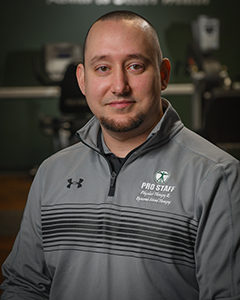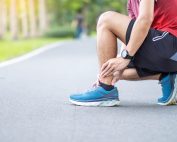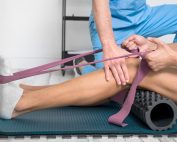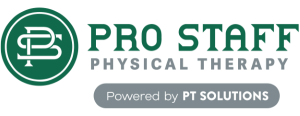Dr. Koc reviews causes, symptoms, and treatment for osteoarthritis.
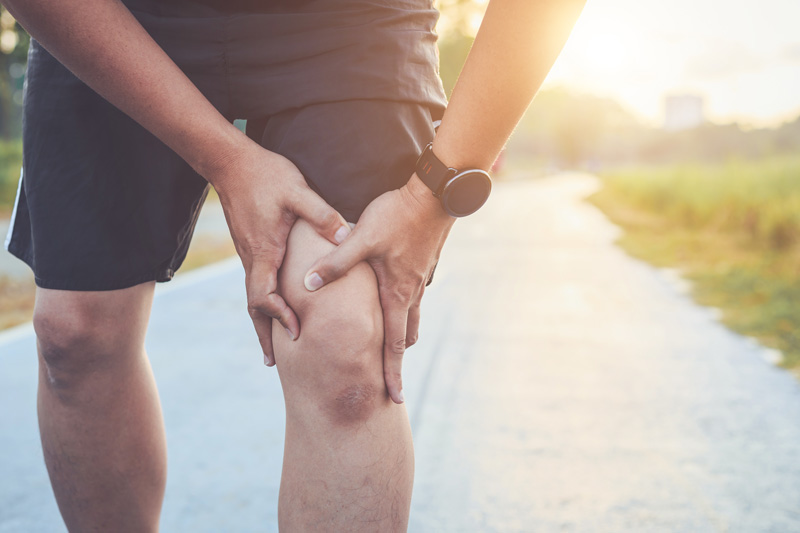
Osteoarthritis is the most common form of arthritis that affects the bones and cartilage of the knees. Although there is no cure, physical therapy remains one of the best treatment options available to patients of all ages.
What is Osteoarthritis?
Osteoarthritis, the most common form of arthritis, is affecting millions of people around the world, according to the Mayo Clinic. Osteoarthritis can see increased pain from basic activities, such as walking, sitting, running, or stretching.
Knee Osteoarthritis occurs when the smooth lining between our joints and cartilage, called synovium, breaks down, causing our body to create more bone. The new bone pushes the cartilage against the joints. The cartilage then causes stiffness, pain, and swelling.
Risk Factors for Knee Osteoarthritis
Most people will get some form of osteoarthritis eventually in their lifetime. However, there are specific risk factors that can increase a person’s chance in developing osteoarthritis earlier in life:
- Age: The primary cause of knee osteoarthritis is age. As the body ages, it becomes more difficult for damaged cartilage to heal.
- Gender: Women in their mid 50s+ are more likely to develop knee osteoarthritis.
- Health: Additional weight will see increased pressure on all joints, adding extra pressure to the knees and increasing the chance of developing osteoarthritis.
- Overuse: Heavy lifting often or overexercising your knees can cause osteoarthritis to develop at an earlier age. However, it is still important to keep a healthy lifestyle that includes exercising.
- Genetics: Heredity can increase your chances of developing osteoarthritis. Abnormalities of bones that surround the knee due to genetic mutations can also increase the chance of osteoarthritis of the knee.
What Can Be Done To Help Treat Osteoarthritis?
While there is no cure for osteoarthritis, it is very treatable with physical therapy. Physical therapists can help: restore loss in range of motion, decrease symptoms of pain, and modify activity levels. Manual techniques can also alleviate pressure. Joint Mobilizations, which is the physical motion and speed act of moving the joint, can improve lubrication and nutrients to the knee joint which can decrease swelling. Once these steps are accomplished, the body can respond well to therapeutic exercises and improve the patient’s overall strength and range of motion.
These exercises along with other treatments can remedy the symptoms of osteoarthritis and release the swelling in problematic areas such as the knee. These techniques are also used to avoid later extremes of partial or total knee replacement otherwise known as Total Knee Arthroplasty (TKA).
How To Prevent Knee Osteoarthritis?
Don’t wait for an osteoarthritis of the knee diagnosis before getting active. Simple daily activities can strengthen muscles around the knee joint, promote blood flow, and recycle nutrients in the joints.
It is best to begin pre-habilitation sessions at your local ProStaff Physical Therapy center.
If you have questions on who to see for osteoarthritis treatment options, it is important to ask. Click HERE to make an appointment today!
Join Our Mailing List
Sign Up for News and Updates!
PRO STAFF LOCATIONS
FIND US ON SOCIAL
Managing Diabetes: The Role of Physical Therapy
Managing Diabetes: The Role of Physical Therapy As of 2024, approximately 38.4 million Americans, or 11.6% of the U.S. population, have diabetes. Of these, 29.7 million cases are diagnosed, while an estimated 8.7 [...]
Staying Active and Injury-Free During Summer Activities
Staying Active and Injury-Free During Summer Activities Summer is a fantastic time to engage in outdoor sports and physical activities. Whether playing soccer, tennis, cycling, or jogging in the park, staying active is [...]
The Importance of Posture: How Proper Alignment Can Prevent Pain and Injury
The Importance of Posture: How Proper Alignment Can Prevent Pain and Injury In today's fast-paced world, where many hours are spent over desks, smartphones, and computers, posture is often neglected. Poor posture can [...]
Rehabilitation for Achilles Tendonitis: Strengthening and Stretching Protocols
Rehabilitation for Achilles Tendonitis: Strengthening and Stretching Protocols Achilles tendonitis is a common but debilitating injury that can sideline athletes and active individuals with intense heel and calf pain. At Pro Staff Physical [...]
Healing and Strengthening Techniques for Fracture Recovery
Healing and Strengthening Techniques for Fracture Recovery Fractures are common injuries resulting from various causes, including accidents, falls, and sports injuries. The journey to recovery involves healing the fracture and restoring muscle strength, [...]
Managing Carpal Tunnel Syndrome with Exercise and Stretching
Managing Carpal Tunnel Syndrome with Exercise and Stretching Carpal Tunnel Syndrome (CTS) is a common condition that can cause pain, numbness, and tingling in the hand and arm. The condition results from pressure [...]
